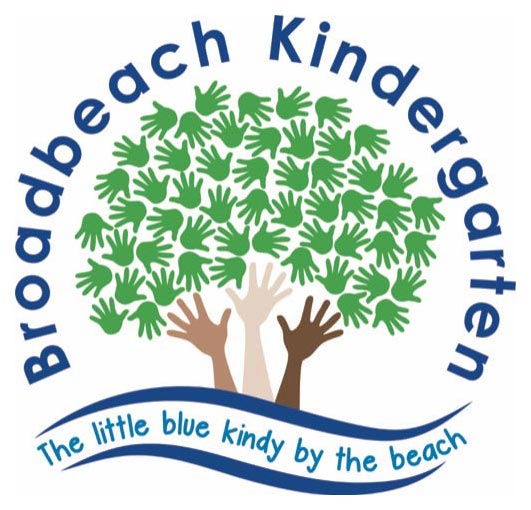HOURS OF OPENING
Our Ocean Warrior group attend every Monday, Tuesday and Wednesday. Educating staff is Mrs Libby Power and Mrs Kathryne Powell.
Hours of children’s attendance is 8:45am – 2:15pm. (These hours exclude public holidays and term holidays)
A calendar is emailed as part of your enrolment pack outlining your child’s days of attendance.
It is most important that these hours of attendance are strictly adhered to. Our kindergarten program begins promptly at 8.45am and we expect all children present and ready to begin their kindy day. All children must be collected by 2:15pm, as our insurance policy does not cover children on the premises after this time.
Office Hours:- Office hours Monday to Wednesday 8:45am until 12pm. Danielle Sorensen – administrator.
FEES
Our current fee structure is as follows:
$100.00 Enrolment Fee. Non-refundable and paid upon enrolment. Includes hat, sunscreen, portfolio, 1 short & 1 long t-shirt, incursions through the year.
$20.00 Membership Fee (per year). A requirement of being a member of a non-profit association.
QUEESLAND KINDERGARTEN LEARNING GUIDELINES
The QKLG provides specificity for children’s learning across the year before starting school, recognising that children bring with them diverse identities and backgrounds. It acknowledges that parents/carers are children’s first teachers and values the vital role families play in children’s lives and their ongoing learning.
The QKLG provides a framework aligned to the EYLF and is designed to support teachers to plan and implement quality teaching and learning.
Teachers create a quality kindergarten program when they combine the advice in the QKLG with:
- their professional knowledge and understanding about children’s strengths, interests, ideas and needs
- family and community priorities and contexts.
The QKLG provides specific advice to support kindergarten teachers to:
- make informed decisions to promote and enrich children’s holistic learning and development
- build respectful relationships with family, community and professional partners
- promote children’s agency, wellbeing and ongoing learning
- interact with children to guide the learning focus
- assess children’s learning and development
- communicate with children, families and professional partners about progress
- build connections between children’s prior, current and future learning experiences to promote continuity of learning.
The continua of learning and development assist teachers as they assess children’s learning and development and reflect on evidence of learning to inform their ongoing decisions.
They can be used at key points across a kindergarten year to reflect on children’s learning progress.
The continua of learning and development are described using three phases — emerging, exploring and extending — which are differentiated by the child’s level of familiarity with the learning situation and level of support needed to demonstrate learning. The continua support teachers to:
- identify and reflect on where the child has come from, where they are now, and where they are going
- monitor and interpret aspects of learning and development, and describe the child’s learning progress
- identify and plan ways to promote significant learnings described in the learning and development areas
- identify the learning needs of all children
- record learning progress across the phases of the continua
- reflect individually and with colleagues.
The learning and development areas describe the knowledge, skills and dispositions that children explore during the kindergarten year.
Teachers plan opportunities for children’s holistic learning across the five learning and development areas listed below. They work with colleagues, families and professional partners to negotiate learning and development priorities.
WHY DOES THIS CENTRE VALUE PLAY?
Research shows play-based problem solving stimulates the growing brain
- A child is motivated from within to play – it is natural
- Play is relatively free from external rules – children are free to make their own
- Play focuses on the process rather than product
- Play is dominated by the players – the children themselves
HOW DO CHILDREN LEARN THROUGH PLAY?
Children learn:
- Social skills by communicating, sharing, cooperating and turn taking
- Problem solving by experimenting and making discoveries
- To express their ideas in different ways by talking about thoughts, building, painting, drawing and role-playing
- To adapt to situations and find solutions to problems by using flexible and creative thinking
- To make meaning of the world by exploring a range of roles
DOCUMENTING YOUR CHILD’S LEARNING – YOUR CHILD’S PORTFOLIO
Children are active seekers of knowledge and are ardent and sometimes surprising carriers of knowledge. In accordance with the philosophies of our curriculum our staff will strive to make this knowledge visible to you by capturing your child’s learning and thinking in individual portfolios. These portfolios will provide an insight into your child’s learning and make the quality of our educating practice visible to you. The use of portfolios in our centre allows staff to gain an in-depth understanding of your child’s development and with the use of concrete illustrations through the inclusion of photos and work samples provides an opportunity for discussion between you and the staff.
These portfolios are a collaborative three-way effort between the child, family and staff and are always available for you to access, add to, and to share with your child. We value the uniqueness of every child, family and community; with this in mind every portfolio will be different as we all experience our own journey.
DAILY ROUTINE
This will vary throughout the year depending on weather, children’s needs, special events and celebrations etc.
8.45am Our day begins with greeting of children and parents by staff; indoor program begins and may include language and music sessions and a group meeting.
10.45am Morning Tea
11.00am Outdoor program begins
12.15pm Lunch
12.45pm Rest time
1.30pm Preparations for departure, quiet activities
2.00 – 2.15pm Farewell by staff, departure
Please note that our indoor and outdoor program times swap according to season. In summer months we are outdoors first before the heat intensifies, and in winter we are indoors first until the day warms up.
